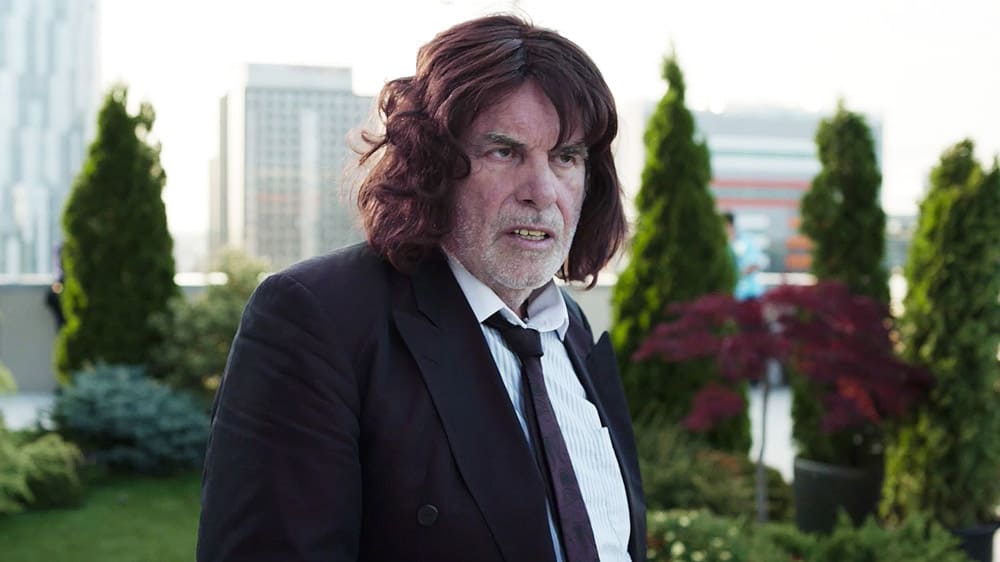Maren Ade’s debut comedy Toni Erdmann proves the Germans can be both harmless and funny in their own awkward and (partly) alienating way.
The common kiss of death for any comedy is venturing outside the hour and a half runtime rule. Too short leaving one unfulfilled and too long shipping the audience directly into the boredom zone wanting relief. The two and a half hour long Toni Erdmann braving those cautious waters with an examination of a withered father/daughter and loss of humor.
Ines Conradi (German indie darling Sandra Hüller), a careerist women of the oil lobbyist variety, losing her youth and liberty as life passed by in favour for unrecognised success. That temptation to loosen up finding its way in the shape of awkward father Winfried (Peter Simonischek), the loving, joyful yang to her bourgeois yin, as he stays with her for a month long visit that feels like an eternity. Ade’s film, behind the veil of smart single-genre marketing and lavish reviews coming out of Cannes, not really a comedy at all despite roaring laughs from time to time. Where most awkward based films have their focus on creating high levels of cringe that twist our smiles up wickedly, which Toni Erdmann does too few and far between. Ade uses time as her way of putting us in the role of the reflector, placing us in rooms we want to leave for the sake of our own need for order and sanity as we reluctantly start to live in every ludicrous moment that washes over us.
Similar in respects to Yorgos Lanthimos’ much superior depression comedy The Lobster (2015) that delivers on the absurdity but uses a lingering pace and twisted emotion to convey its point, Ade’s point about subverting conventional ideals for mindful ones that reach for the stars of immaturity perhaps all too familiar in a post-Dead Poets Society time, offering previously fed messages of oddity with a Kaufmanesque tone and a face sporting a scraggy wig and goofy fake teeth.

This isn’t to say Ade’s film is entirely a rinse and repeat enduring test. At her TIFF16 Q&A session Ade spoke about the theme of performance that runs throughout the film, giving the experience a more theatrical structure than one would expect. Ines’ career built on performance and influence to the point she’s half molded into this stern, typical persona.
Her father tugging at her immature side with his larger than life, too odd to be true caricature of the unexpected that captures those around him with shock. Ade allowing her script, much like Winfried’s double life as Toni, to just flow on and on to see what sticks and takes both us and Ines out of our tight shells. Simonischek and Hüller capturing these figures to near perfection where Ade may veer off into showing too much. Their own performances more grounded and homely than one would expect, their performances the essential crutches to why the narratives and relationships work the way they do.
With a more seasoned filmmaker I’d expect a tighter film, more balanced and affecting from the absurd comedic side along with the dramatic, offering more plates to be spun in the narrative to keep our attention with the thematic intentions, however that may to be too tall an order to ask. It certainly seems like so as I think of it, though the rumblings of a Netflix adaptation or Jack Nicholson/Kristin Wigg remake could deliver on those unturned stones.
With a mix-match of emotions and tones the film could develop as a cult gem for those wanting something cluttered, personally embracing or just something that takes you into weird avenues where gross bodily fluids meet the top of cupcakes soon to be eaten, but your want for that is for you to decide. You just might not get the catharsis and strange delight something like that should give.
Fun Fact:
Toni Erdmann (2016) was one of the the best-reviewed and most popular films at the 69th Cannes International Film Festival, but it didn’t receive any awards by the ‘Official Competition’ jury. There was nearly a consensus, that “Toni Erdmann” would have been a deserving Palme d’Or winner and that a rare opportunity to give the top award to a female filmmaker was missed at Cannes.




COMMENTS